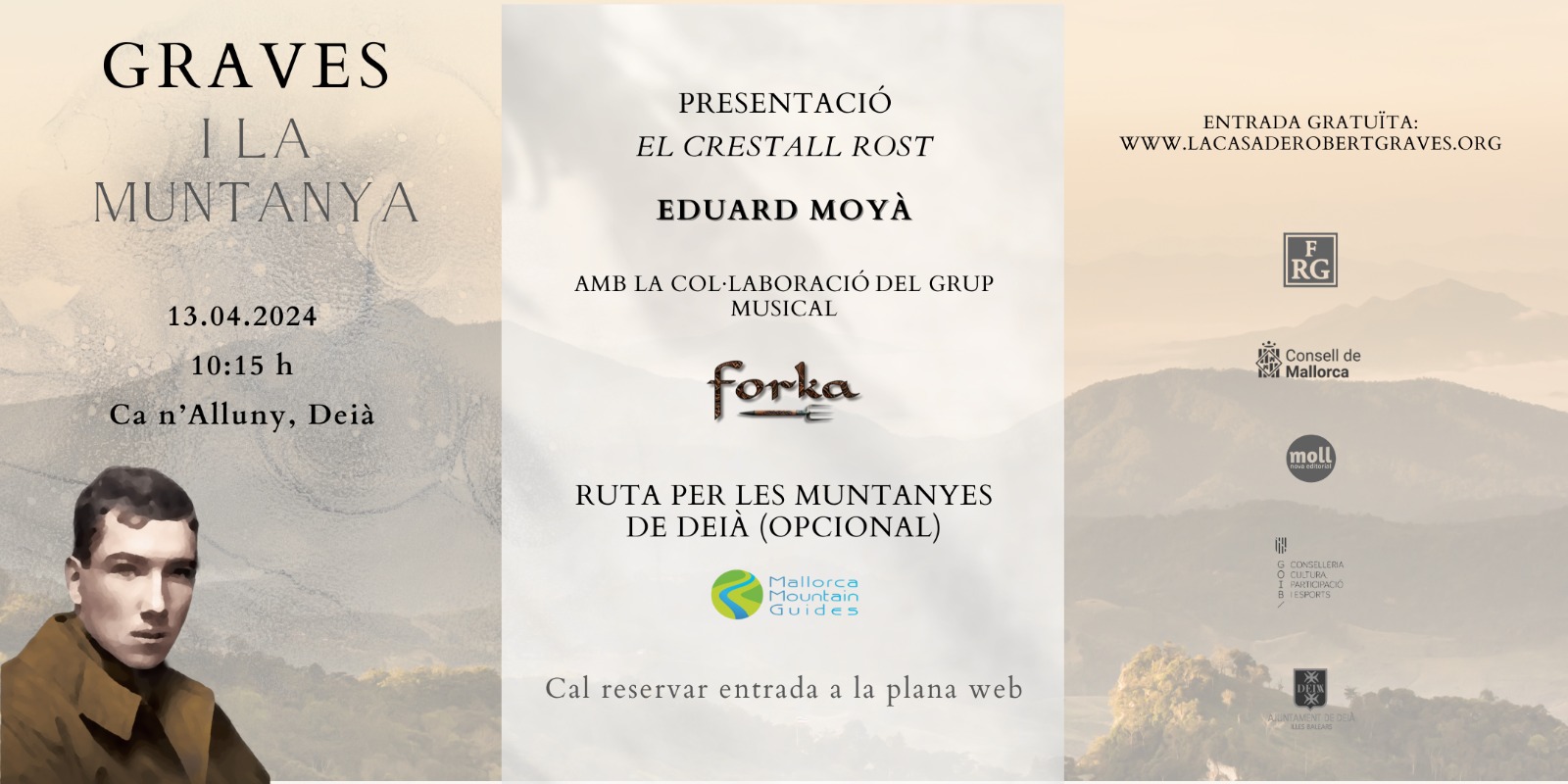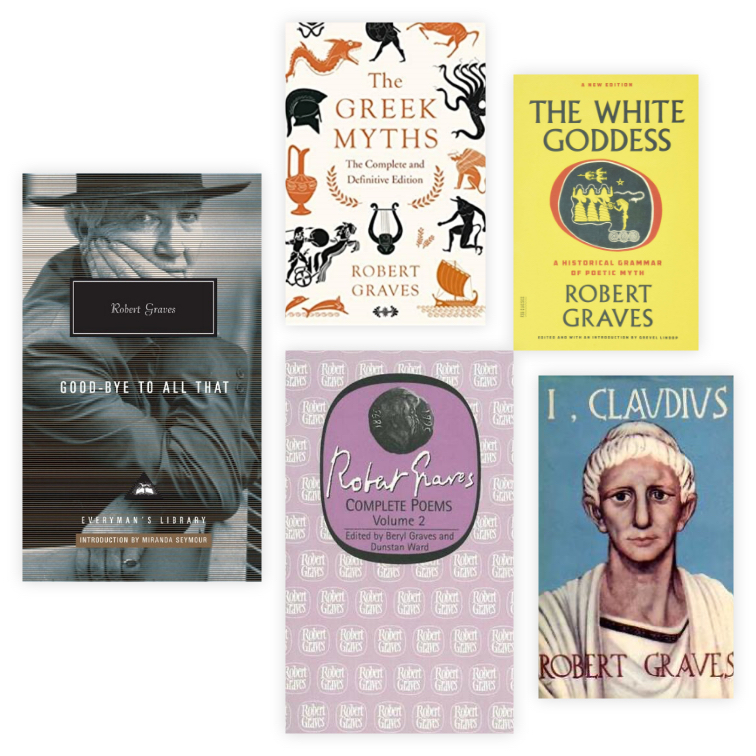Discover a new facet of Graves' life with the presentation of "El Crestall Rost" with the translations of Dr. Eduard Moya
Robert Graves, celebrated for his outstanding poetic contribution to the 20th century, had an enduring affinity with the natural world, particularly the rugged landscapes of North Wales in his youth and the awe-inspiring mountains of La Tramuntana in his life rear. This talk offers the audience a unique opportunity to explore the intersection of his poetry and his passion for the mountains.
One of the central themes explored in the exhibition is the idea that rock climbing taught Robert Graves to trust his senses and intuition, skills that were crucial in the difficult journey, both in the world of mountains and in the kingdom of love. Graves drew parallels between the two, seeing the lover as a traveler venturing into the perils of love, much like a mountaineer tackling the challenges of a perilous ascent. Visitors will delve into the world of Graves through a selection and reading of his poems, which shed light on his intimate relationship with the mountains.
"Robert Graves and the Mountains" invites literary enthusiasts, as well as those with a love of nature, to delve into the life and work of this remarkable poet. The talk is a testament to how the natural world can serve as a source of inspiration and wisdom, inspiring one of the most celebrated poets of the 20th century to create verse that continues to resonate with readers around the world.
We present the musical group Forka to enjoy a unique folkloric musical experience that will bring us the sounds of the Atlantic in connection with the sounds of the Mediterranean.
After the presentation, there will be a guided tour (voluntary) of approximately 90 minutes through the mountain that connects Deià with Ca n'Alluny. If it is of interest to you, wear appropriate clothing and footwear for the terrain and possible climate changes.
April 13, Ca n'Alluny, Deià at 10:15 a.m.
Departure on foot: 11:45am
Language: Catalan
Descobreix una nova faceta de la vida de Graves amb la presentació de "El Crestall Rost" amb les traduccions del Dr. Eduard Moyà.
Robert Graves, celebrat per la seva excepcional contribució poètica al segle XX, va tenir una afinitat perdurable amb el món natural, especialment amb els paisatges escarpats del Nord de Gal·les en la seva joventut i les impressionants muntanyes de La Tramuntana en la seva vida posterior. Aquesta xerrada ofereix a l'audiència una oportunitat única per explorar la intersecció de la seva poesia i la seva passió per la muntanya.
Un dels temes centrals explorats a l'exposició és la idea que l'escalada en roca va ensenyar a Robert Graves a confiar en els seus sentits i intuïció, habilitats que van ser crucials en el difícil viatge, tant en el món de les muntanyes com en el reialme de l'amor. Graves va establir paral·lelismes entre ambdós, veient l'amant com a viatger que s'aventura en els perills de l'amor, igual que un alpinista abordant els reptes d'un ascens perillós. Els visitants s’endinsaran en el món de Graves a través d'una selecció i lectura dels seus poemes, que il·luminen la seva relació íntima amb les muntanyes.
"Robert Graves i les Muntanyes" convida als entusiastes de la literatura, així com aquells amb amor per la natura, a endinsar-se en la vida i obra d'aquest poeta notable. La xerrada és un testimoni de com el món natural pot servir com a font d'inspiració i saviesa, inspirant un dels poetes més celebrats del segle XX a crear versos que continuen ressonant amb els lectors arreu del món.
Presentam el grup musical Forka per gaudir d'una experiència musical folklòrica única que ens portarà els sons de ‘lAtlàntic en connexió amb els sons mediterranis.
Després de la presentació, hi haurà una sortida guiada (voluntària) d'aproximadament 90 minuts per la muntanya que connecta Deià amb Ca n'Alluny. Si és del vostre interès, porteu roba i calçat adequats per al terreny i pels possibles canvis climàtics.
13 d'abril, Ca n'Alluny, Deià a les 10:15 h.
Sortida a peu: 11:45h
Idioma: Catala

One smile relieves
A heart that grieves
Though deadly sad it be,
And one hard look
Can close the book
That lovers love to see.
Robert Graves-One Hard Look
Take your delight in momentariness,
Walk between dark and dark - a shining space
With the grave's narrowness, though not its peace.
Robert Graves-Sick Love
You mean that people who continue virtuous in an old-fashioned way must inevitably suffer in times like these.
Robert Graves, Claudius the God and His Wife Messalina
One smile relieves
A heart that grieves
Though deadly sad it be,
And one hard look
Can close the book
That lovers love to see.
Robert Graves-One Hard Look

